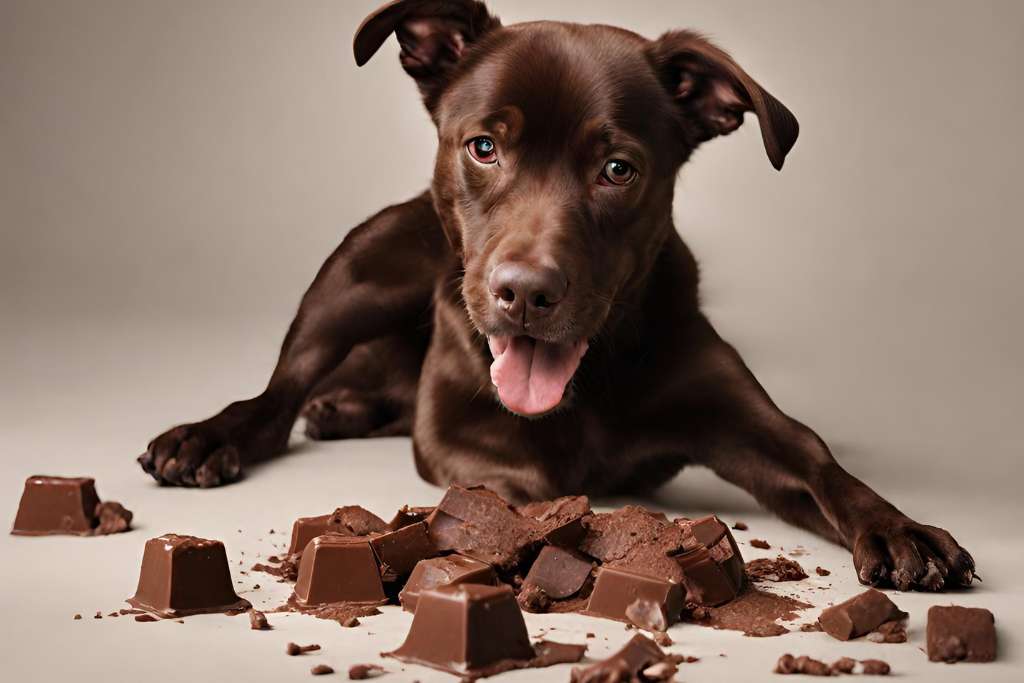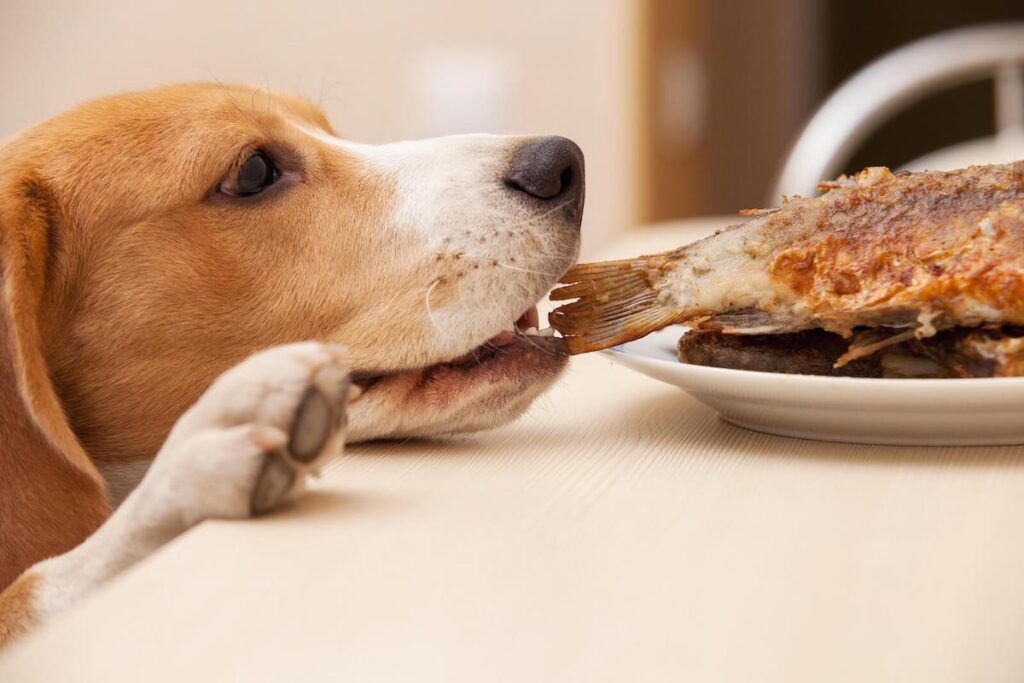Dogs are more than just pets, they are beloved family members who deserve the best care and nutrition. However, not all foods that are safe for humans are safe for dogs. Understanding what food should dogs NOT eat is crucial to keeping them healthy and happy. I learned this the hard way when my own pup got sick after sneaking a bite of chocolate off the counter.
That experience made me more conscious of what I feed my furry friend. If you’re wondering what foods are harmful to dogs, read on to learn which ingredients to avoid and how to keep your dog safe from toxic foods.
What Food Should Dogs NOT Eat: Common Toxic Foods
Some everyday foods that seem harmless to us can be highly dangerous for dogs. Here are some of the most common toxic foods that you should keep far away from your pup:
1. Chocolate and Caffeine
Chocolate contains theobromine, which is toxic to dogs and can cause symptoms like vomiting, diarrhea, rapid heart rate, and even seizures. Dark chocolate and baking chocolate contain higher levels of theobromine and are especially dangerous.

2. Grapes and Raisins
Even a small amount of grapes or raisins can lead to acute kidney failure in dogs. While the exact toxic component is still unknown, the risks are too high to ignore. If your dog ingests these, contact your vet immediately.
3. Onions and Garlic
Onions and garlic, whether raw, cooked, or powdered, can destroy a dog’s red blood cells, leading to anemia. Symptoms include weakness, lethargy, and pale gums. Even small amounts can be dangerous over time.
4. Xylitol (Artificial Sweetener)
Xylitol is commonly found in sugar-free gum, candy, and some peanut butter brands. It can cause a dangerous drop in blood sugar, leading to seizures, liver failure, and even death. Always check ingredient labels before giving any human food to your dog.
5. Avocados
Avocados contain persin, which can cause vomiting and diarrhea in dogs. The pit is also a choking hazard and can cause intestinal blockages if swallowed.
6. Alcohol and Raw Dough
Alcohol, even in small amounts, can lead to poisoning in dogs, causing vomiting, tremors, and respiratory failure. Raw dough made with yeast can expand in a dog’s stomach, leading to bloating and potentially life-threatening complications.
7. Macadamia Nuts
Macadamia nuts are extremely toxic to dogs and can cause weakness, vomiting, tremors, and hyperthermia. Even a few nuts can make your dog seriously ill.
8. Dairy Products
While not necessarily toxic, many dogs are lactose intolerant and can suffer from digestive issues like diarrhea and stomach upset after consuming milk, cheese, or ice cream.
What Food Should Dogs NOT Eat: Hidden Dangers
Some foods might not seem harmful at first glance but can have dangerous effects on your dog’s health. Here are a few hidden dangers you should be aware of:
Cooked Bones
Many people think giving bones to dogs is natural, but cooked bones can splinter and cause choking, blockages, or tears in the digestive tract. Stick to raw bones or vet-approved chew toys instead.
Fatty Foods (Bacon, Fried Foods, Butter)
High-fat foods like bacon and fried treats can lead to pancreatitis in dogs, a painful and serious condition. Symptoms include vomiting, fever, and abdominal pain.
Raw Meat and Fish
Raw meat and fish can carry harmful bacteria like Salmonella and Listeria. Certain types of raw fish, such as salmon, may also contain parasites that can be deadly to dogs.

Salt and Salty Snacks
Excess salt can lead to sodium ion poisoning in dogs, causing symptoms like vomiting, diarrhea, tremors, and seizures. Avoid feeding your pup salty snacks like chips, pretzels, and processed meats.
Nutmeg and Other Spices
Nutmeg contains myristicin, which can cause tremors, seizures, and nervous system issues in dogs. Other spices like cinnamon and chili powder can also cause irritation and digestive upset.
What To Do If Your Dog Eats Something Toxic
Even with the best precautions, accidents happen. If you suspect your dog has eaten something toxic, follow these steps:
- Identify the food and quantity – Try to determine what your dog ate and how much.
- Watch for symptoms – Look for signs of poisoning, including vomiting, diarrhea, weakness, drooling, tremors, or seizures.
- Call your vet immediately – Provide details about the food and symptoms. They may instruct you to bring your dog in or take specific actions at home.
- Contact a pet poison helpline – In emergencies, you can call the ASPCA Animal Poison Control Center or the Pet Poison Helpline for guidance.
- Do NOT induce vomiting unless advised – Some substances can cause more harm if vomited. Always follow professional advice.
Conclusion
Knowing what food should dogs NOT eat is essential for keeping your furry friend safe and healthy. While it’s tempting to share human food with our pets, many common ingredients can be toxic or harmful. From chocolate and grapes to onions and xylitol, being aware of these dangers can prevent serious health issues. As a dog mom, I’ve become extra cautious about what I leave on the counter and what treats I offer my pup. If you ever have doubts about a specific food, consult your veterinarian before sharing. By making informed choices, you can ensure your dog lives a long, happy, and healthy life!